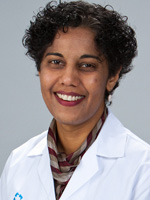 My 65 year old patient was surprised when she was recently diagnosed with colon cancer since she did not have any symptoms. She had a routine colonoscopy which showed a cancer in her colon. Fortunately, her cancer was diagnosed at a very early stage and was completely removed by surgery. She did not have to undergo chemotherapy or radiation treatments. She was very thankful that she proceeded with the colonoscopy recommended by her family doctor.
My 65 year old patient was surprised when she was recently diagnosed with colon cancer since she did not have any symptoms. She had a routine colonoscopy which showed a cancer in her colon. Fortunately, her cancer was diagnosed at a very early stage and was completely removed by surgery. She did not have to undergo chemotherapy or radiation treatments. She was very thankful that she proceeded with the colonoscopy recommended by her family doctor.
While colon cancer can cause bleeding in stools, it may not cause any symptoms at early stages. Some other symptoms associated with colon cancer include abdominal cramps, changes in bowel movements, loss of weight, or loss of appetite.
Colon cancer is the third most commonly detected cancer and the second most common cause of cancer related death. Approximately 1 in 20 people in the US will develop colon cancer in their lifetime. People often don’t know that colon cancer is one of the few cancers preventable with early detection. Colon cancer can be prevented or detected early by having regular screening tests. These include yearly testing of your stools for blood as well as getting a periodic colonoscopy.
The American Cancer Society recommends that everyone should have a screening colonoscopy starting at age 50. This is a very important test that allows the doctor to look into your entire colon, remove any polyps before they can turn into cancer, as well as detect any hidden colon cancer. People sometimes refuse this important test because of their dislike for the bowel preparation before colonoscopy.
Considering how lifesaving this procedure really is, the bowel preparation is not more than a small inconvenience every few years of your life. In fact, increased testing is the major reason for decreasing death rates from colon cancer over the past 20 years.
Patients often ask me if they can do anything to prevent colon cancer. We certainly can! Studies have shown that increasing intake of fiber and eating less animal fat can decrease your chances of developing colon cancer. Foods high in fiber include fruits and vegetables, whole grains, oats and bran. The roughage from high fiber food items will keep your bowel healthier. Also, did you know that simple regular exercise such as walking, cutting down alcohol intake and quitting smoking can all significantly decrease your risk of developing colon cancer?
Colon cancer is treated primarily be surgery if caught early. Some people may need chemotherapy to increase the likelihood of cure. They may also need radiation treatments particularly if the cancer is found lower down in the rectum. It is exciting to note that we have many non-chemotherapy medications to treat colon cancer. These are antibody treatments with minimal side effects and some are used alone or in combination with chemotherapy. Today people with colon cancer live much longer than even 10 years ago due to these advances in treatment.
Remember that colon cancer can be cured if detected early. Please check with your health care provider to see if you are due for a colonoscopy. Also, do not ignore blood in your stools and notify your doctor immediately of any such symptoms. Together we can make a big difference in continuing to decrease mortality from this cancer.
Dr. Priya Rudolph, a graduate from Yale University is an experienced hematologist/oncologist with Georgia Cancer Specialists. She has offices in Athens (ph 706-369-4478) and at the Cowles Clinic in Greensboro (Ph 706 454-0159). Georgia Cancer Specialists is a top 10 privately owned practice and is a national leader in advanced cancer treatment and research. Its physicians and staff offer many clinical trials and state of the art personalized care to each individual patient.